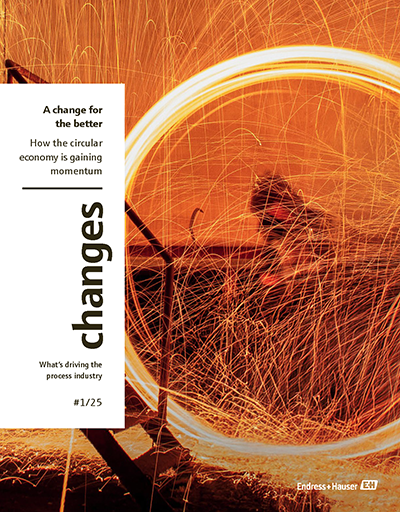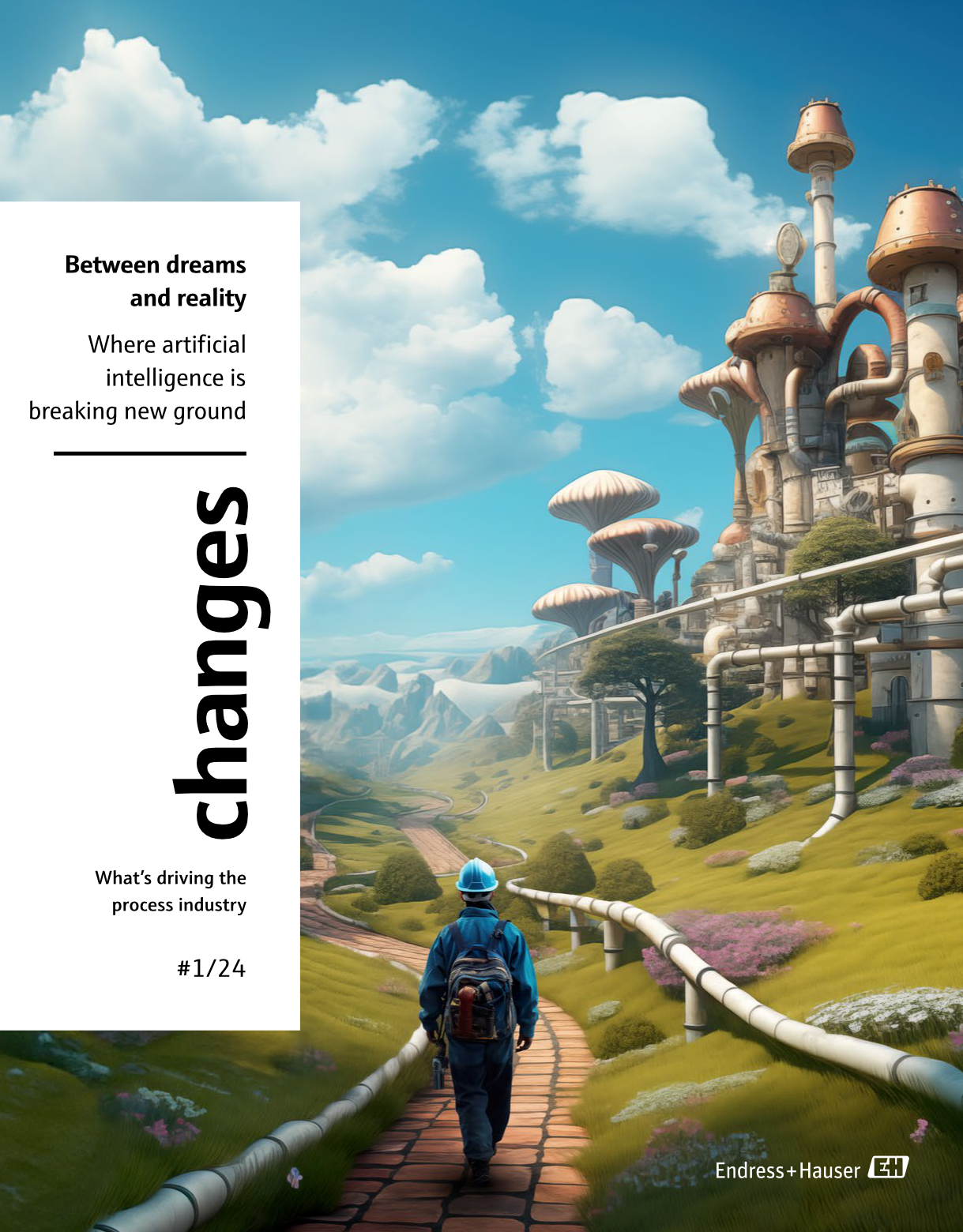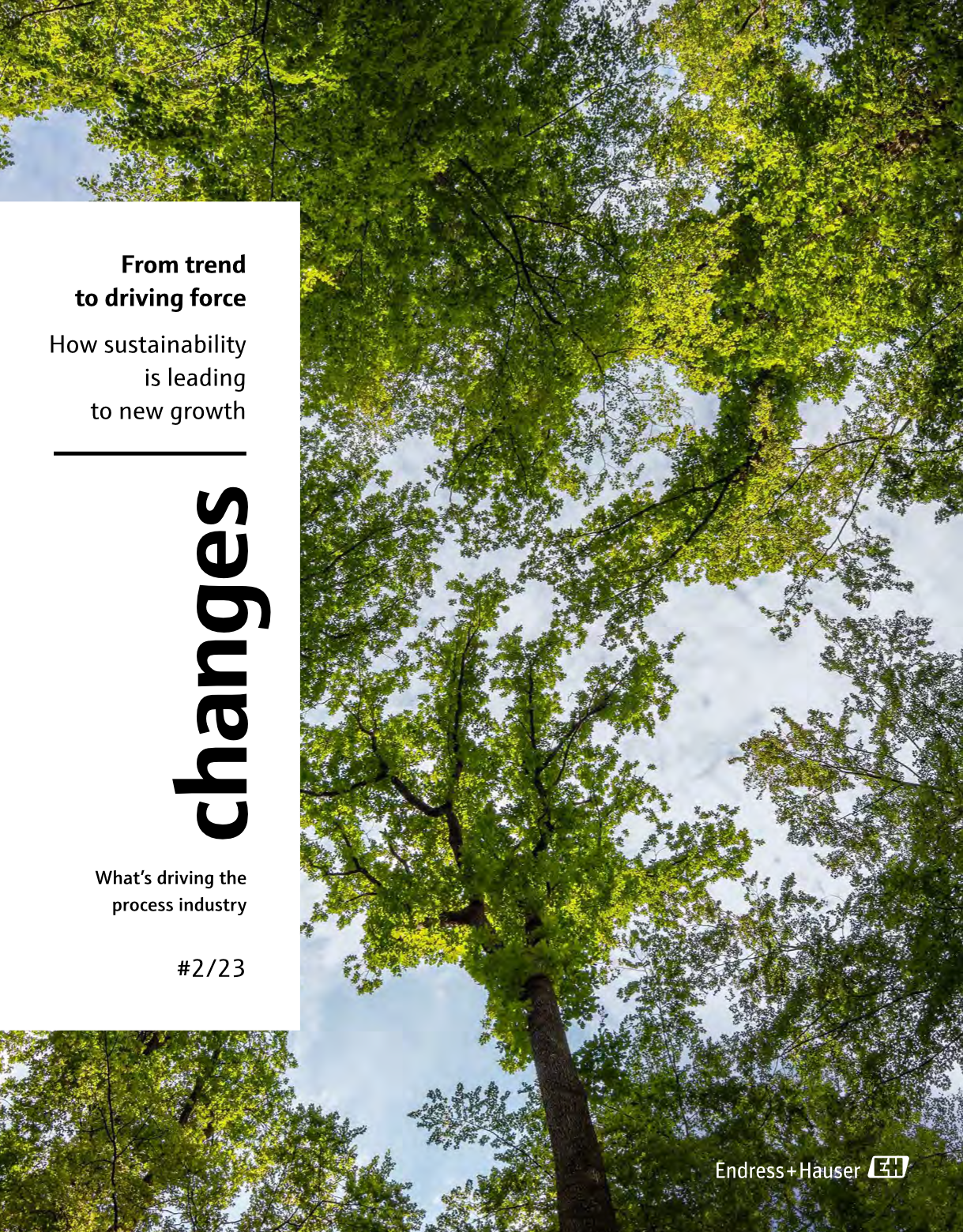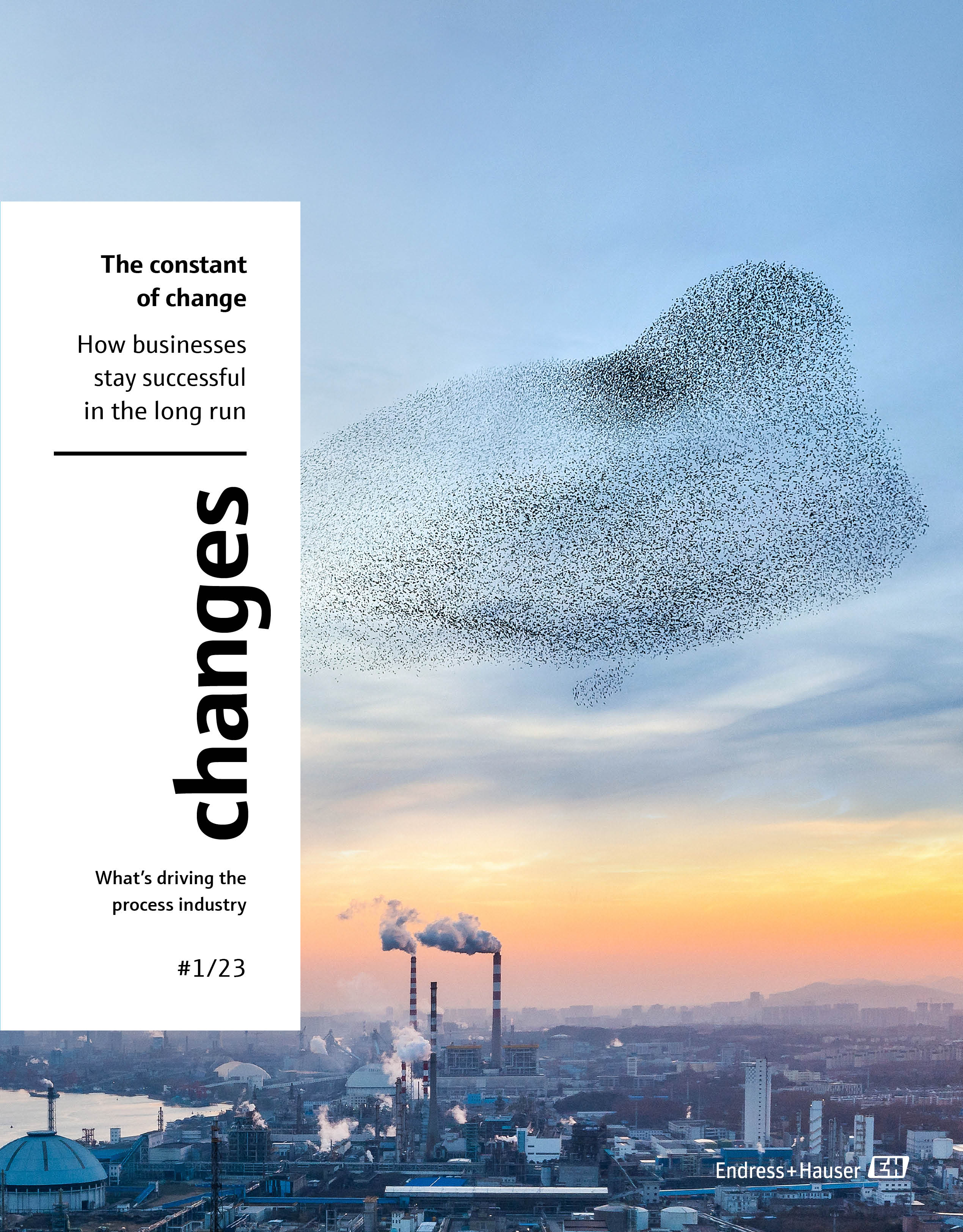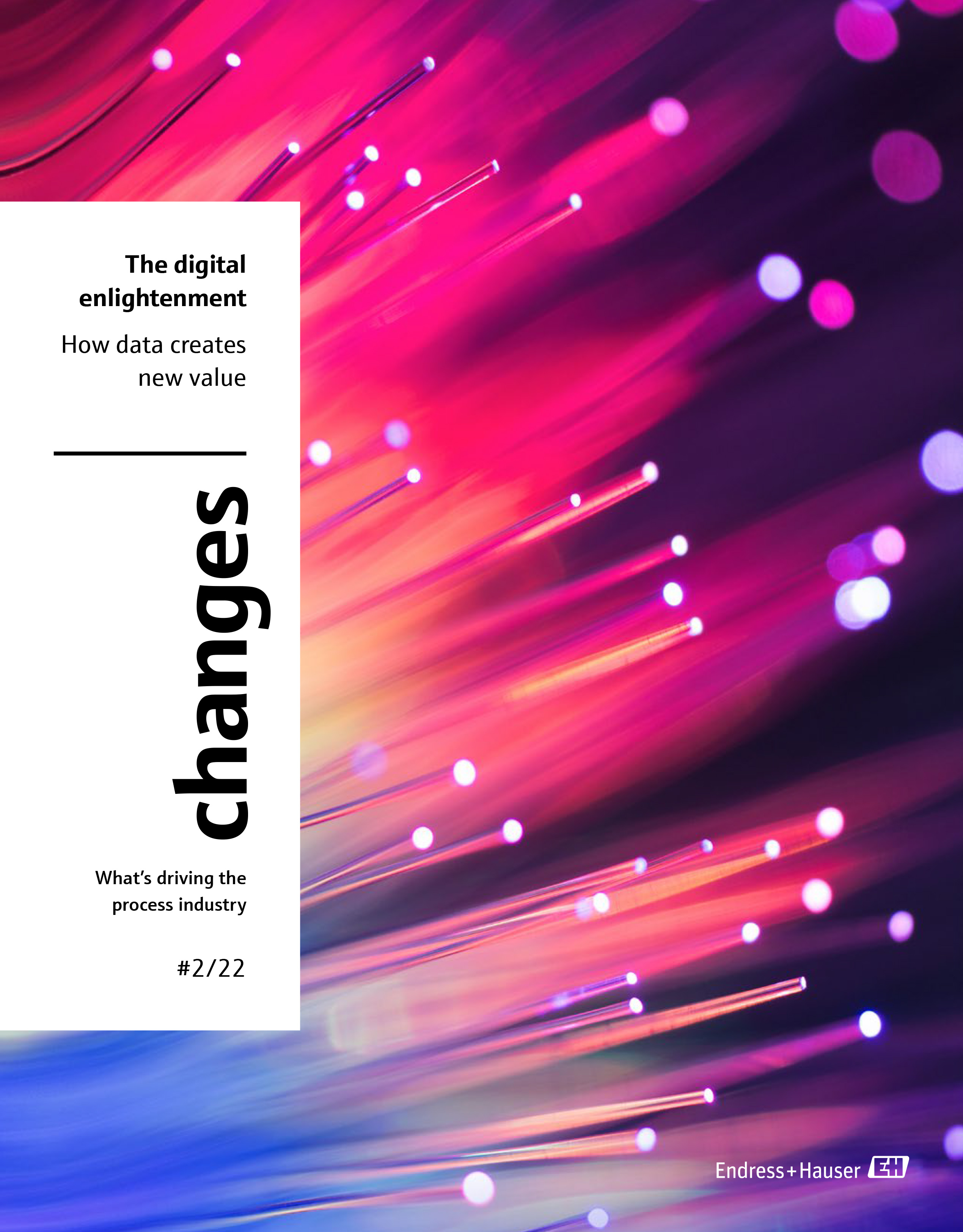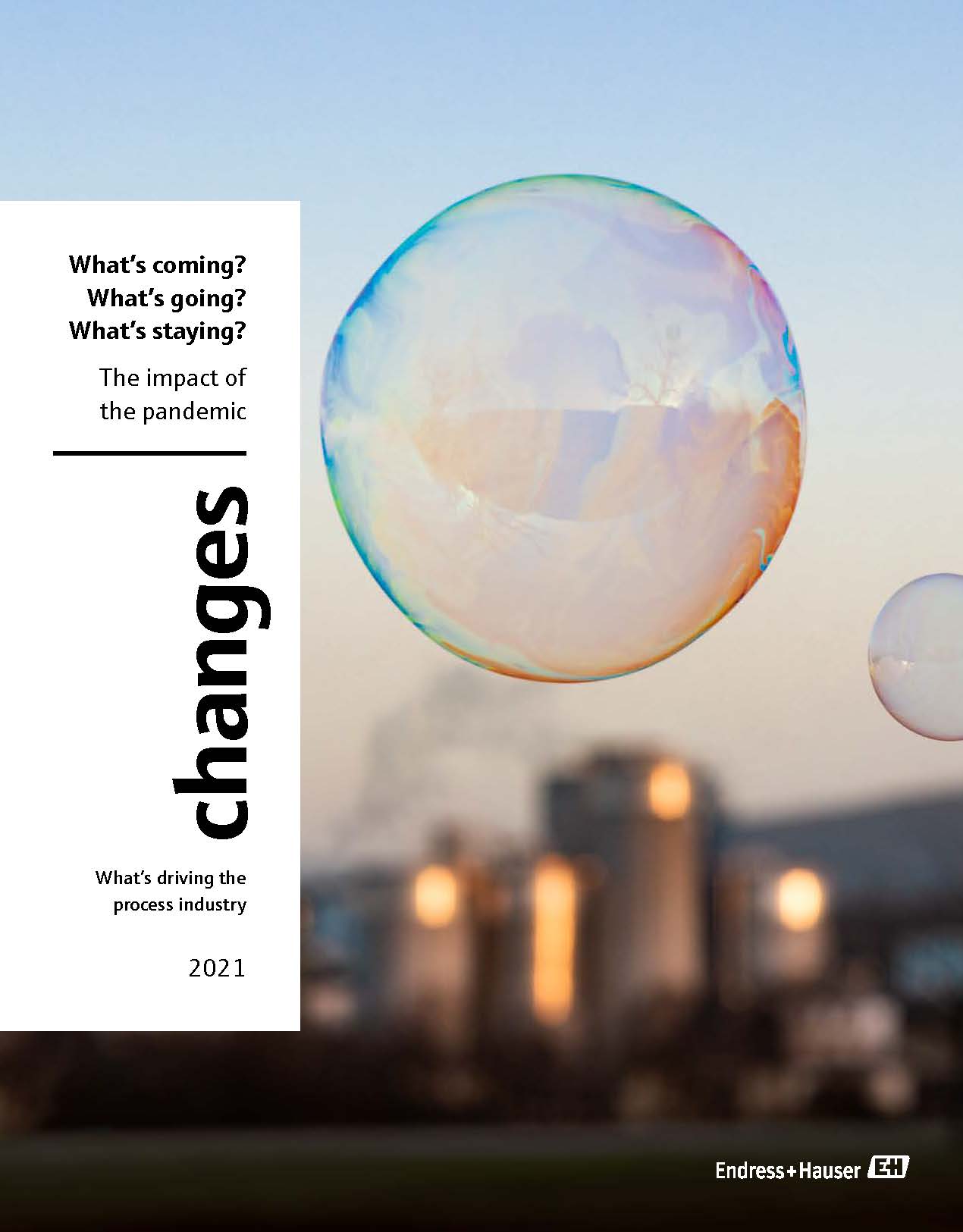“We need knowledge and enthusiasm”
Artificial intelligence will fundamentally change how people work and how companies do business – in a good way. Christian Klein, CEO of SAP, is convinced of that. In a joint interview with Endress+Hauser Supervisory Board president Matthias Altendorf, he talks about the transformation required to exploit its potential.
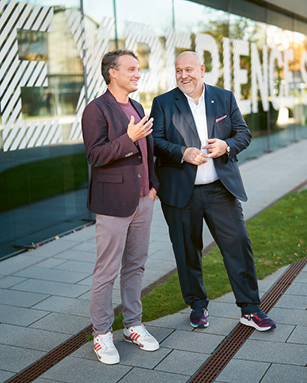
Mr Klein, when did you last use artificial intelligence in your everyday life?
Klein: Yesterday, actually. My son came home from school and showed me a new drawing app. Kids draw something with the app and the AI technology is supposed to guess what it is.
And in your business activities?
Klein: I regularly use our own AI applications for things like travel invoice compliance checks and vendor selection. Our AI hub has various large language models like GPT4 embedded, so when preparing a speech I will check in there to see whether it can provide a boost or two.
How will AI systems change the way your customers work with SAP products?
Klein: The changes will take hold everywhere. One example is how users communicate with SAP systems. Here there are millions of transactions occurring every second, which still tend to be entered manually. That will change. Communication will shift to natural language, accompanied by a much higher degree of automation.
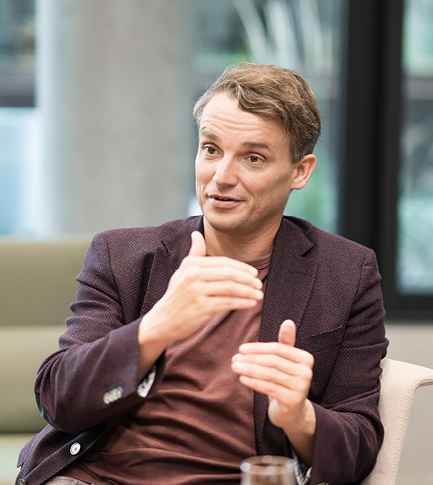
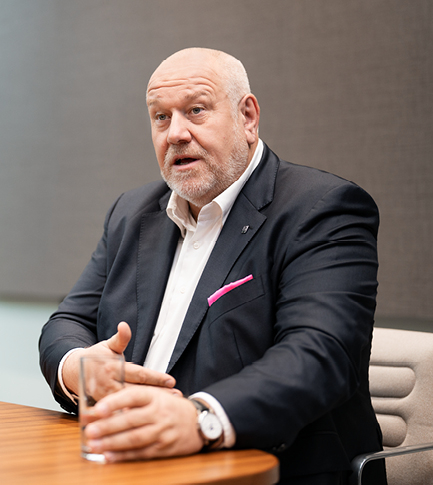
Mr Altendorf, what do AI applications mean for the process industry?
Altendorf: The process industry is in the midst of a digital transformation. By now, everyone knows the huge potential in data. The problem is the huge volume. In a large chemical plant with thousands of actuators and sensors supplying vast quantities of data every second, no human can keep track of it all. This is where AI technology helps by categorizing, prioritizing and then processing the data so that companies can make betterinformed decisions. The point here is that a data-driven industry would not be possible without AI technology.
Where does AI technology offer further potential?
Klein: The many CEOs and CFOs I talk with all tell me that they have a balancing act to perform. Customers want to see businesses becoming more sustainable. On the other hand, those businesses are expected to grow and increase their bottom lines. The question is how sustainability and growth fit together. Take supply chains. These generate a lot of data as well. Manually analyzing all the options is an impossible task. Here we use AI technology to help us make smart decisions, for example by intelligently linking logistics chains. Or consider business planning. There is now AI technology that can optimize warehousing based on all kinds of weather, business, consumer and economic data. In short, AI technology is a driver of growth for businesses. It all rests on data. Our corporate customers have already agreed to the use of data for over 20,000 SAP systems. We are jointly developing a data model that continues to grow.
Altendorf: Our production involves a lot of welding. Until recently, we had people visually inspecting components to ensure they are in the correct position for laser welding. This is an important step because incorrect alignment could ultimately cause harm to people and the environment. Now there is AI technology performing the task. It works faster and more reliably than humans. We save time in production, use less energy and increase quality, which in turn improves efficiency and sustainability.
When it comes to using AI technology, how do collaboration and connectivity fit in?
Klein: It’s really simple: without those, nothing works. All collaborative effort is cloud based these days. That is where data is shared, and where companies can operate as part of a network. Ten years ago, businesses were still purchasing SAP software in order to digitalize. Today, the second step is about opening up the business and collaborating with others. Staying with the subject of supply chains, AI technology can make full use of its strengths when networked beyond enterprise boundaries.
Is the industry ready to think beyond individual company boundaries?
Altendorf: From my perspective, this is crucial to moving a company forward. In tomorrow’s world, no business will be able to survive on its own. The successful ones will be those that collaborate and through doing so join a technological ecosystem. A good example here is the Open Industry 4.0 alliance launched by SAP, which Endress+Hauser joined as a founding member. This same mindset also needs establishing inside businesses. There used to be veritable silos. But internally too, collaborative styles of working are the only way to go. What the development of the steam engine once meant for muscle power, generative AI now means for brain power. We will see huge boosts in productivity and interconnectedness.
“AI technology is really strong when networked beyond enterprise boundaries.”
Christian Klein
CEO SAP

Some developers are warning that AI technology could be too much for humans to handle. So do we need regulation before it’s too late?
Klein: I was in the US several weeks ago and had precisely this debate with representatives of the US government. I realized that the general mindset is different over there. When a new technology is developed, you first look for use cases, then you monitor them, with issues of ethics and regulation raised afterward. In Germany, and likewise at EU level, regulation tends to be considered before there is even a use case for the technology. I believe the American approach is better.
Altendorf: Of course, there must be laws and ethical standards applying to the use of AI. But a core problem in Europe is indeed a lack of entrepreneurial mindset, attempting to control through prohibition rather than incentives, such that enthusiasm gets driven into the ground. But this enthusiasm is exactly what we need. We should be viewing technical developments like AI as an opportunity, not as a risk. What develops otherwise is a widespread fear of the unknown.
Let’s glance into the crystal ball. How will AI technology have changed the business models of Endress+Hauser and SAP in a decade’s time?
Altendorf: Our offerings will expand. For our customers to really utilize the data we generate, they will need additional context – in other words, a deep understanding of this data. Here is the business model of the future: data plus context. Of course, we will continue to produce measurement technology, although it may be that a customer no longer owns the actual product and only wants the data from it.
Klein: In 10 years software developers will need to write much less code than today; that task will be shifted onto generative AI technology. The time gained can be used to think about the application or the quality of the algorithm. AI will also help us make better budget decisions. Today, if we asked 100 CFOs how the business will develop, we would receive 100 forecasts. A decade from now, AI will do a better job of this because it can factor in and join together much more data.
If your children ask whether there will still be jobs for them in the age of AI, what do you say?
Altendorf: I was born in 1967 and still remember the time when the first office computers arrived. It was claimed that hundreds of thousands of jobs would disappear. But what happened? More jobs were created and productivity increased many times over. This is how it will be again in the AI era. One thing is clear: work will change. People will be able to utilize their potential for more intelligent, creative and communicative activities.
Klein: I have no concerns about the jobs of the future either. Growth occurs wherever new business models develop – and the employees benefit. Of course, jobs will be more data-intensive. Schools and universities will need to consider this. It comes down to teaching a networking mindset and bringing IT and business together. As you pointed out so succinctly, Mr Altendorf, what we need is not only knowledge, but enthusiasm. Having both will put us on the threshold of an era where we can use our creativity to manage generative AI in our favor.
“A data-driven industry would not be possible without AI technology."
Matthias Altendorf
President of the Supervisory Board of the Endress+Hauser Group
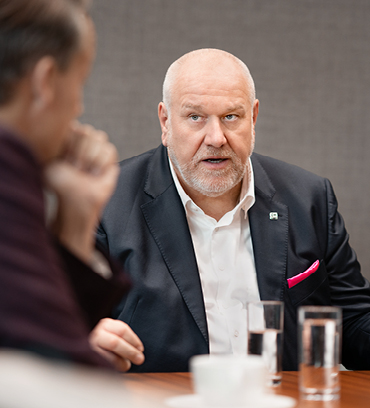
Published 02.05.2024, last updated 13.05.2024.
Dive into the world of the process industry through new exciting stories every month with our «changes» newsletter!
